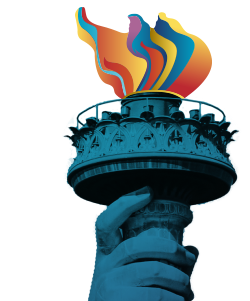Shortly after immigrating to the U.S. in 1999, Nakamura told "Scientific American" magazine, "I want to achieve the American dream, that's why I came here. I couldn't achieve the American dream in Japan. Here, I can start a venture company in five or 10 years if I could invent a new device." Nakamura, who is widely recognized as the father of modern day LED (light-emitting diode) lighting, won the 2014 Nobel Prize in Physics for the invention of efficient blue LEDs, which he first developed in Japan. The Nobel Committee cited the discovery as a new, more efficient, and environmentally friendly way "to illuminate the world" while improving "the quality of life for over 1.5 billion people around the world who lack access to electricity." Nakamura, an engineering professor at the University of California-Santa Barbara and research director for its Solid State Lighting & Energy Electronics Center, has won numerous prestigious awards for his body of work, which includes more than 200 US patents and 500 academic papers. In 2008, he co-founded Soraa, a California-based developer and manufacturer of LEDs. Updated July 2018
Shuji Nakamura
Engineer, Nobel Prize in Physics
Born in: Japan

More 2018 Great Immigrants

Carmen R. VelasquezNew York State Supreme Court Justice, District 11

Imbolo MbueAuthor, PEN/Faulkner Award for Fiction

Nicolas BerggruenFounder and Chairman, Berggruen Institute

Ruth BeharAnthropologist and Writer
Get the Carnegie Reporter and our best articles delivered to your inbox.


